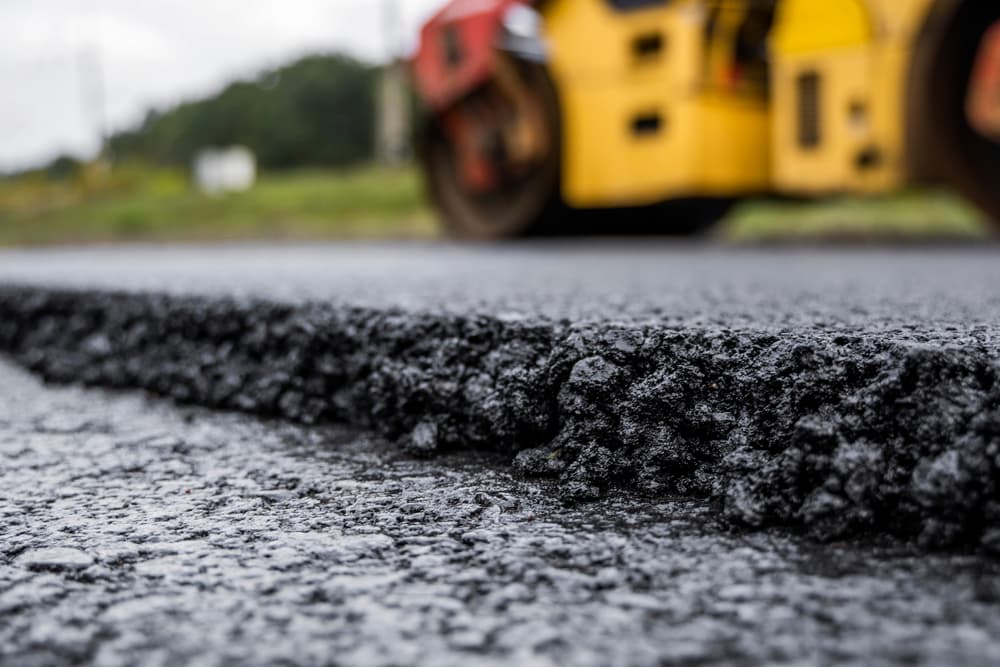Hot Mix Asphalt Paving: The Ultimate Option for Industrial Parking Lot Restorations
Hot Mix Asphalt Paving: The Ultimate Option for Industrial Parking Lot Restorations
Blog Article
Exploring the Ecological Benefits of Hot Mix Asphalt
The utilization of Warm Mix Asphalt in framework jobs provides a compelling instance for sustainable development and ecological stewardship. By diving into the intricate information of its production processes and the cutting-edge usage of recycled materials, a deeper understanding arises of how this technology goes past simple surface applications. The ecological benefits of Warm Mix Asphalt prolong far beyond initial impacts, providing a nuanced perspective on just how this material can pave the means for a greener future.

Lowered Greenhouse Gas Emissions
The manufacturing process of Hot Mix Asphalt involves warming the mix of aggregate and asphalt binder to high temperature levels. By including recovered asphalt pavement and recycled asphalt shingles right into the mix, the demand for virgin products is minimized, leading to energy cost savings and decreased discharges associated with extraction and handling.
Researches have shown that Hot Mix Asphalt pavements have a smaller sized carbon impact over their life cycle contrasted to other pavement alternatives. The resilience and recyclability of Warm Mix Asphalt additionally enhance its ecological benefits by reducing the demand for constant maintenance or substitute, thus conserving sources and reducing exhausts connected with repair activities.
Energy Effectiveness and Conservation
The manufacturing process of Hot Mix Asphalt not only decreases greenhouse gas discharges but additionally contributes substantially to energy effectiveness and conservation efforts. Power performance is a vital benefit of Warm Mix Asphalt production compared to other pavement types. The sturdiness of Hot Mix Asphalt decreases the frequency of upkeep and repair, leading to long-term power financial savings.
Sustainable Sidewalk Solutions

One secret facet of lasting sidewalk solutions is making use of recycled materials such as reclaimed asphalt pavement (RAP) and recycled asphalt roof shingles (RAS) By including these products into the asphalt combinations, the need for virgin sources is lowered, resulting in lower energy consumption and greenhouse gas emissions throughout manufacturing. Additionally, the reuse of these materials helps divert waste from land fills, adding to an extra lasting and round economic situation.
Moreover, lasting pavement solutions focus on optimizing pavement layout to boost efficiency and longevity. Techniques such as cozy mix asphalt (WMA) and rock mastic asphalt (SMA) enhance the durability and strength of sidewalks, decreasing the need for constant fixings and click over here replacements. By implementing these innovative strategies, facilities developers can develop sidewalks that not only meet high-performance standards yet likewise minimize their ecological footprint.
Minimized Environmental Influence
With a concentrate on sustainability and eco-conscious practices, sidewalk services are made to lessen the environmental influence of building and construction and upkeep processes. Warm mix asphalt, in specific, offers a number of benefits that add to lowering the overall environmental impact of road framework. One vital element is the recyclability of asphalt, which can be recycled multiple times without endangering its high quality. This particular aids in saving natural resources and lowering the amount of waste sent out to landfills.
Additionally, the manufacturing of warm mix asphalt discharges reduced levels of greenhouse gases compared to other pavement materials, making it a much more eco friendly option. The energy effectiveness of asphalt plants has actually also enhanced throughout the years, bring about reduced fuel usage and reduced exhausts. In addition, the smooth surface area of hot mix asphalt decreases rolling resistance for automobiles, causing reduced fuel consumption and decreased air pollution from car discharges.
Payment to Environment Modification Reduction
Warm mix asphalt plays an important function in mitigating climate modification with its sustainable homes and lowered environmental effect. One considerable payment to environment adjustment reduction originates from the energy effectiveness of hot mix asphalt production. Contrasted to various other sidewalk alternatives, the production process for hot mix asphalt consumes less energy and discharges reduced levels of greenhouse gases, thus minimizing its overall carbon impact.
In addition, warm mix asphalt's capability to reflect sunshine, recognized as albedo, assists in decreasing metropolitan heat island effects. By decreasing warm absorption and retention, hot mix asphalt sidewalks read here can reduce the demand for air conditioning in urban locations, as a result decreasing greenhouse gas exhausts connected with energy usage for cooling purposes.
Furthermore, the sturdiness and recyclability of hot mix asphalt better improve its environment change reduction capacities. Regrading. The lengthy life-span of asphalt sidewalks reduces the demand for regular repair services or replacements, inevitably find decreasing the carbon exhausts linked to roadway maintenance activities. Moreover, the recyclability of asphalt products minimizes the need for virgin resources and reduces the environmental influence of pavement building and construction, lining up with lasting practices for environment modification reduction.
Conclusion
To conclude, the environmental advantages of Hot Mix Asphalt show its substantial contribution to lowering greenhouse gas discharges, preserving power, and reducing ecological influence. This lasting pavement option aligns with climate modification reduction initiatives, advertises source conservation, and enhances facilities growth. By making use of recycled materials, energy-efficient production processes, and resilient style, Warm Mix Asphalt plays a vital duty in fostering a much more eco-friendly strategy to infrastructure construction.
The manufacturing procedure of Warm Mix Asphalt includes warming the combination of accumulation and asphalt binder to high temperature levels. By incorporating reclaimed asphalt pavement and recycled asphalt shingles right into the mix, the demand for virgin products is reduced, leading to energy savings and decreased emissions associated with removal and handling.
One trick facet of lasting sidewalk options is the use of recycled materials such as reclaimed asphalt sidewalk (RAP) and recycled asphalt tiles (RAS) Strategies such as warm mix asphalt (WMA) and stone mastic asphalt (SMA) boost the toughness and strength of pavements, minimizing the requirement for constant repairs and substitutes. Contrasted to various other pavement options, the manufacturing process for warm mix asphalt eats less energy and discharges lower degrees of greenhouse gases, therefore decreasing its overall carbon impact.
Report this page